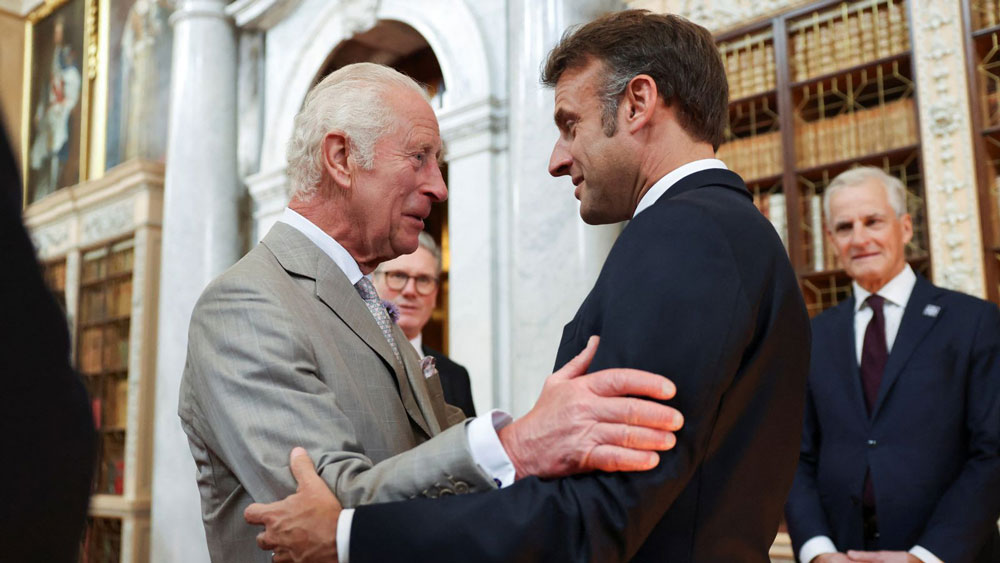French President Emmanuel Macron’s three-day state visit to the United Kingdom, meant to celebrate the historic ties between the two nations, has been overshadowed by growing concerns over U.S. President Donald Trump’s latest tariff threats. While the U.K. rolled out the red carpet for Macron and his wife, Brigitte, the specter of global trade uncertainty looms large over the diplomatic pageantry.
A Grand Welcome Amidst Political Challenges
The British government has spared no effort in showcasing its traditional pomp and ceremony. Upon arriving at RAF Northolt on Tuesday morning, Macron and his wife were welcomed by the Prince and Princess of Wales, William and Kate. They were then whisked off to Windsor Castle, where they joined King Charles III and Queen Camilla for a state banquet. The visit features a carriage procession through Windsor, a hallmark of Britain’s royal pageantry.
Macron will also address lawmakers in London and hold talks with British Prime Minister Keir Starmer. Discussions are expected to focus on shared priorities, including migration, trade, defense, and security. The visit marks the first state visit by an EU leader to the U.K. since its departure from the bloc in 2020, signaling a renewed effort to strengthen Franco-British ties.
Trump’s Tariff Threat Casts a Shadow
However, the visit’s celebratory tone has been dampened by Trump’s announcement of potential tariff hikes on several countries, set to take effect on August 1. Although the European Union (EU) was not among the nations targeted in the initial round of letters sent by the White House, the risk of heightened tariffs on European goods remains a pressing concern.
On Monday, Trump shared screenshots of signed letters sent to 14 countries, including Japan, South Korea, and South Africa, warning them of steep tariff hikes. While the EU was not directly addressed, the bloc remains on high alert as negotiations with Washington continue. Reports suggest that the EU is racing to finalize a trade deal with the U.S. this week, though significant hurdles remain.
Holger Schmieding, chief economist at Berenberg Bank, noted that the EU is unlikely to negotiate away the 10% base tariff imposed by the U.S. on European imports. However, the bloc hopes to secure exemptions for specific sectors, such as aircraft manufacturing, to minimize the overall impact.
Diplomatic Challenges for Macron
The tariff issue poses a significant challenge for Macron, whose relationship with Trump has often been strained. The French president has been publicly criticized by Trump on multiple occasions, with the U.S. leader recently accusing Macron of being “publicity-seeking” during the last G-7 summit. In contrast, British Prime Minister Keir Starmer appears to have established a more cordial relationship with Trump, despite their differing political views. Starmer’s rapport with Trump may offer valuable insights for Macron as he navigates this complex transatlantic relationship.
Strengthening Franco-British Relations
Despite these challenges, Macron’s visit underscores the importance of the U.K.-France relationship. King Charles III emphasized the shared challenges both nations face, stating, “As friends and as allies, we face them together. These challenges know no borders: no fortress can protect us against them this time.” The French president is also scheduled to meet business leaders in London and participate in a France-British summit with Starmer on Thursday, further solidifying the bilateral relationship.
This state visit is not only a display of diplomatic goodwill but also a historic moment, as it represents the first visit by an EU leader to the U.K. post-Brexit. The British government has described the visit as a “historic opportunity to showcase the breadth of the U.K.-France relationship.”











